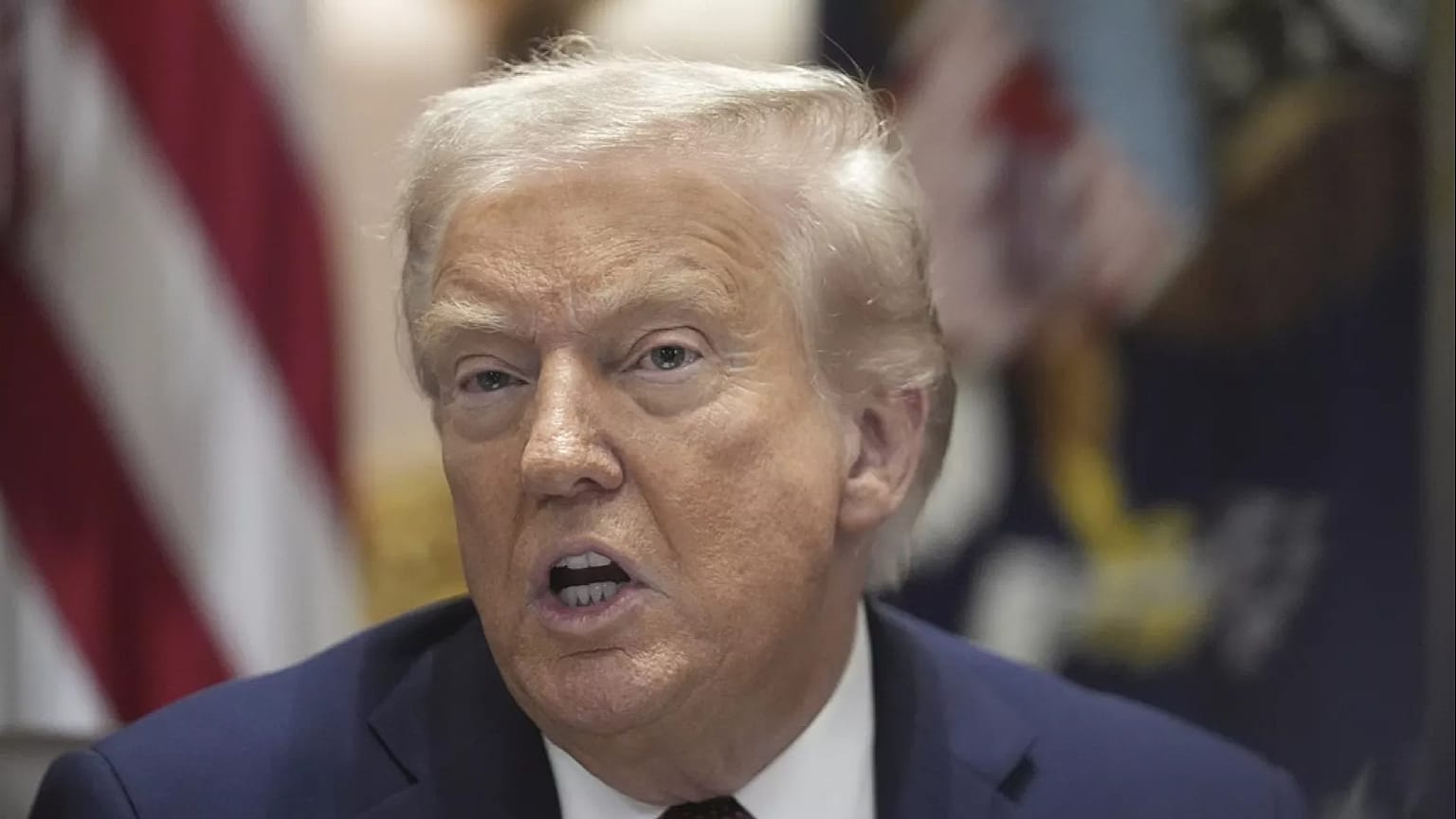Politics
US Appeals Court Rules Trump’s Tariffs Unconstitutional but Stays Decision

A federal appeals court in the United States has ruled that former President Donald Trump lacked the legal authority to impose sweeping tariffs on multiple trading partners. This decision, delivered by the US Court of Appeals for the Federal Circuit, reinforces a prior ruling from a specialised federal trade court in New York. Despite declaring the tariffs unconstitutional, the court has allowed them to remain in place until mid-October 2023, providing time for the Trump administration to appeal to the Supreme Court.
The ruling specifically addresses tariffs that Trump enacted in April, which affected nearly all US trading partners, as well as earlier levies on China, Mexico, and Canada. Trump had justified these tariffs under the 1977 International Emergency Economic Powers Act, claiming that the United States’ trade deficits constituted a national emergency. In a statement on his social media platform, Trump expressed his intent to appeal, warning that the decision could “literally destroy the United States of America.”
The April tariffs, which Trump referred to as “reciprocal tariffs,” included rates as high as 50% on countries with which the United States maintained a trade deficit, alongside a baseline tariff of 10% on other nations. Following these tariffs, some countries, including the United Kingdom, Japan, and the European Union, entered negotiations to reach trade agreements and mitigate potential economic fallout. In contrast, nations that did not comply faced significantly higher tariffs, such as a 40% levy on Laos and a 30% tariff on Algeria.
The court’s decision has significant implications for Trump’s trade agenda, which aimed to reshape decades of US trade policy. In its ruling, the appeals court noted that “it seems unlikely that Congress intended to grant the President unlimited authority to impose tariffs.” This perspective underscores the complex relationship between the executive and legislative branches regarding tariff authority. Although the Constitution grants Congress the power to set taxes, including tariffs, presidents have gradually been permitted greater leeway in this area.
While the administration could potentially impose tariffs under a different legal framework, specifically Section 232 of the Trade Expansion Act of 1962, this would require an investigation by the Commerce Department. This contrasts sharply with Trump’s approach of imposing tariffs unilaterally without congressional approval.
In light of this ruling, the future of Trump’s trade policies hangs in the balance as the administration prepares to challenge the decision. The legal landscape surrounding tariffs in the US is evolving, and the implications of this case could have lasting effects on international trade relationships and domestic economic conditions. The court’s ruling serves as a reminder of the checks and balances inherent in US governance and the ongoing debate over the extent of executive power in economic matters.
-

 Top Stories3 months ago
Top Stories3 months agoTributes Surge for 9-Year-Old Leon Briody After Cancer Battle
-

 Entertainment4 months ago
Entertainment4 months agoAimee Osbourne Joins Family for Emotional Tribute to Ozzy
-

 Politics4 months ago
Politics4 months agoDanny Healy-Rae Considers Complaint After Altercation with Garda
-

 Top Stories4 months ago
Top Stories4 months agoIreland Enjoys Summer Heat as Hurricane Erin Approaches Atlantic
-

 World5 months ago
World5 months agoHawaii Commemorates 80 Years Since Hiroshima Bombing with Ceremony
-

 Top Stories3 months ago
Top Stories3 months agoNewcastle West Woman Patricia Foley Found Safe After Urgent Search
-

 Top Stories5 months ago
Top Stories5 months agoFianna Fáil TDs Urgently Consider Maire Geoghegan-Quinn for Presidency
-

 World5 months ago
World5 months agoCouple Convicted of Murdering Two-Year-Old Grandson in Wales
-

 World5 months ago
World5 months agoGaza Aid Distribution Tragedy: 20 Killed Amid Ongoing Violence
-

 World5 months ago
World5 months agoAristocrat Constance Marten and Partner Convicted of Infant Murder
-

 Top Stories4 months ago
Top Stories4 months agoClimbing Errigal: A Must-Do Summer Adventure in Donegal
-

 Top Stories4 months ago
Top Stories4 months agoHike Donegal’s Errigal Mountain NOW for Unforgettable Summer Views









